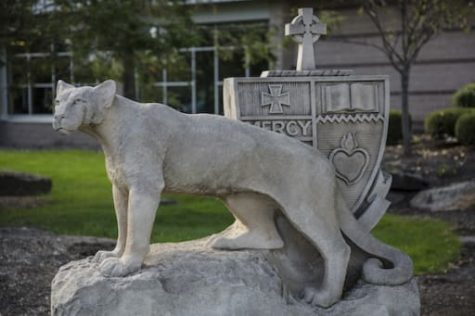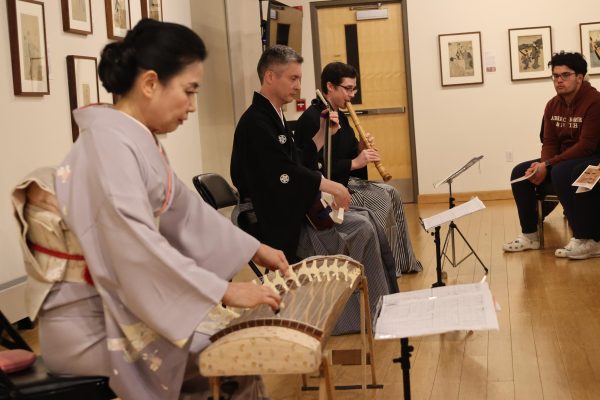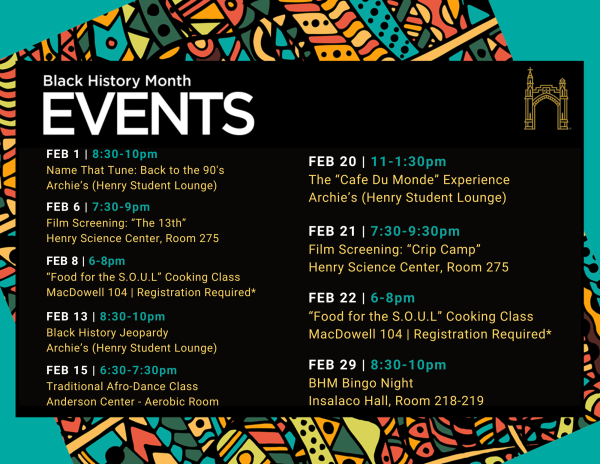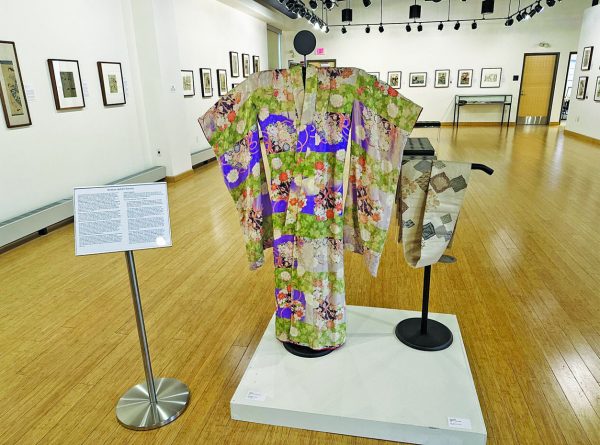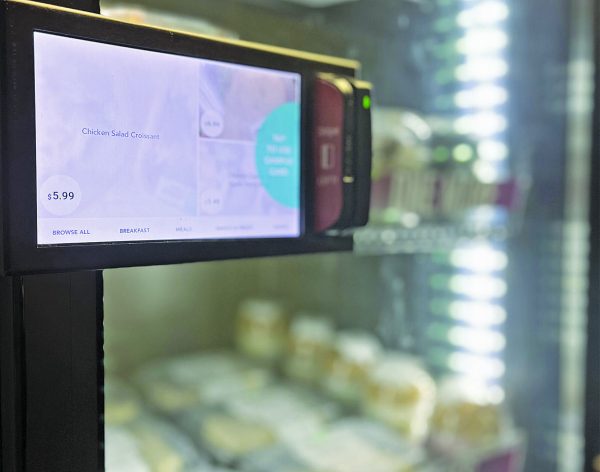COVID Plan Inspires Optimism Among Students, Staff
September 16, 2020
Trying to recall the feeling of walking, maskless, to class or grabbing lunch with friends at one’s side is a difficult task for many students, but junior sports management major Eddie Turner said he feels comfortable with COVID-19 campus protocols because they give him more control.
“As a commuter, I feel safer in a sense that I have more control over who and what I am in contact with throughout the day,” he said.
The COVID-19 pandemic has changed the lives of so many and left the future of the fall 2020 semester uncertain, but Kit Foley, Vice President of Student Life and one of many staff members working on the university’s response to COVID-19, has an optimistic outlook.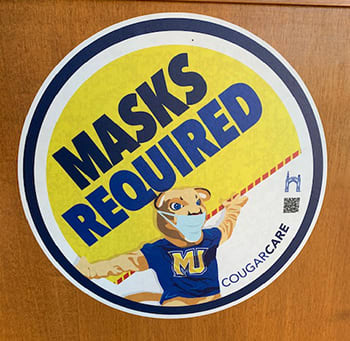
She credits her hope partially to the work of the Cougar Care Team, a group of faculty and staff who manage and deliver information on COVID-19 to the community. Foley said it was evident last spring that a team was needed to create the safest environment for students, faculty, and staff hoping to return to campus.
The early stages of the Cougar Care Team included staffers like Foley, Sandy Federo from the Health and Wellness Center, Curtis Wiseley from the CAPS Center, Erin Burns-Kilduff from the physician’s assistant program, and Barbara Schwartz-Bechet, the Dean of the College of Health Sciences. Together, they devised with a plan that would allow for the campus to operate in-person while still maintaining safety.
“We spent time with Geisinger Healthcare System, with their infectious disease doctors and their chief medical officer. We were looking at the Pennsylvania state requirements from the Department of Health as well as the Department of Education, looking at the CDC and what their recommendations were, and then thinking about who we were as a campus and what we needed to do that would work on our campus,” Foley said.
The group was later structured with a smaller core group made up of Paul Nardone, Director of the Center For Adult Education and Continuing Learning; Donald Stacknick, Assistant Director of Athletics, and Blake Brown, Social Media Marketing Strategist. This core group meets daily with Foley, Mark Van Etten, Vice President of Finance and Administration, and David Rehm, Vice President of Academic Affairs, to manage information about the pandemic.
Protocols for in-person learning took form from there, including mask requirements, social distancing, daily symptom checks through the Live Safe app, and reminders about good hygiene.
Foley said other areas of the community, such as Residence Life, provided an analysis of student housing. As a result, renovations to McHale Hall now provide several floors of single rooms only.
Houses on Lake Street and Machell Avenue were also turned into quarantine spaces for students who are not able to go home if they test positive.
Smaller groups of faculty were then tasked with reorganizing classrooms to maintain social distancing,
working with Metz Culinary Services for meals, and updating the academic schedule.
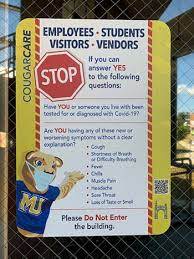
Foley said tests are available only to people who show systems of COVID-19. She said this strategy is due to the low availability of tests but also because the team didn’t want to provide people with false security.
“The interesting thing about testing is that you and I could test negative today but then could test tomorrow and be positive. The testing allows us to remove people from the community, but again, it sometimes provides a false sense of security. It’s a double-edged sword, but the bottom line came down to the availability of tests. It’s not easy to get them,” she said.
Staff also drew inspiration from other universities such as Purdue, Penn State, and Elon. Foley also said they are in contact with Kings College, Wilkes University, and the University of Scranton in the event that their students have been exposed to each other.
Foley said that while these guidelines were important decisions, the most important was how to ensure the team would communicate the idea of unity.
“The most important thing we did, I think, was begin to communicate to our community that we’re all in this together and that we as a community has a responsibility to each other and that the decisions that we made individually could have positive or some concerning impacts on our community,” she said.
This messaging has helped make the guidelines more effective, she said.
“In the communication, I’ve put out to students, I’ve tried to ask for their help and tried to be encouraging because I think that’s important,” Foley said. “Everybody’s scared and everybody sees numbers at other places and it’s not that we don’t have concerns, but we really felt that we have a really good student community and we wanted to give them the opportunity to come back and try. We have faith in their ability to do it and to date, they haven’t proven us wrong.”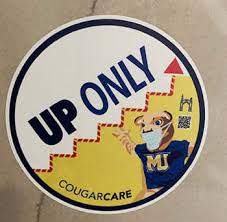
Open communication with students is crucial, she said.
“We try to put update out not only daily with the dashboard, but also the Cougar Care Team is putting stuff out weekly to remind people and update them. To be honest, when people ask us questions, we answer them. I think that’s really important, too. As a community, there’s a lot of personal touch here, I think, and we’ve tried to really simulate that with how we’re managing if students have symptoms or have to quarantine,” she said.
So far, she said, the number of cases remains low, and those who have been exposed did not seem to be exposed to COVID-19 on campus.
Students seem to be responding well to the new guidelines. On-campus resident Elizabeth Fasti also approves of the university’s handling of pandemic risks.
“The faculty on campus have been very thorough when thinking of ways to enforce social distancing,” said the sophomore occupational therapy major.
Foley said she thinks the biggest one for people will be staying vigilant.
“I think it’s easy to kind of say do I really have to wash my hands this much or so what I don’t have my mask on,” she said. “I think you get tired of doing that sometimes. I think a challenge may come during flu season. We have to continue to remain vigilant and continue to understand that the decisions that we make are not only our decisions, but that it has a greater impact. I have confidence that our students will continue to do that.”
She said she hopes students take this time to focus on their own health and wellness.
“Taking some to keep ourselves healthy and keep our stress levels down, I think that’s important. We have a pretty well-knit community and people tend to reach out, so how can you do that in a way where people are feeling connected but we’re doing it in a safe way. We’re certainly here to support the students and make sure they have a positive experience and if they need some support, get that to them.”
She also hopes to see the continuation of the teamwork and unity show as the semester progresses.
“What I would like to see happen is that we’re able to maintain a healthy community, that we’re able to continue through our date of Nov. 24 and students are able to go home and enjoy holidays with their families and then we’re able to resume in the spring. That’s what I hope will happen.”
And from what she has seen so far, she is optimistic.
“We’ve been able to contain and I think it’s because everybody has been working really hard to make this happen. My conversation with students have been that they want to be here through Nov. 24 and everybody understands that in order to do that, we have a part to play. I would just encourage that behavior. If we continue to do that I think we’re going to be okay,” she said.
